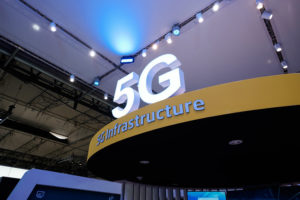
The Pentagon is not considering owning and operating its own 5G network, the department’s chief information officer said Wednesday, clarifying that a recent Request for Information is intended to gather industry’s input on ways to share more spectrum in the future. “It is not our intent to go off and run and operate an independent 5G network inside the DoD,” Dana Deasy, the DoD CIO, told reporters. “The whole purpose of the RFI was we stepped back and said okay…

 By
By 











